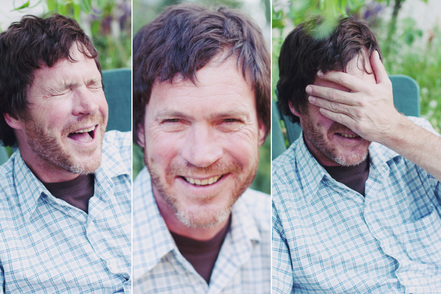This past week I avoided looking at those red numbers. Not because I didn’t want to find out the time, rather, I didn’t want to be reminded how blasted hot it was outside!
The New York Times got it right when writer N.R. Kleinfield said the 104 degree heat created, “instant dripping wretchedness.”
I didn’t like it. No one did.
But we got through it, didn’t we? And, today my delightful clock read a welcoming 67 degrees. I looked at it with both eyes open and a smile on my face. With our short weather memory banks, the heat wave almost seems a thing of the past. Of course, August is around the corner…
We faced something we didn’t like, something quite unpleasant, and we got through it. And we will again. How’d we do that?
We found ways to cope.
Some of us jumped in pools, even fully clothed. My creative photographer, Beka Schott of Mod Photography, had the right idea for this week’s cool photo shoot! Some of us stayed inside with the AC on high. One of my friends put up a snowy winter screensaver for distraction. We found ways to get through, to cope.
Coping is all about finding ways to make the best of difficult things.
It’s not just the weather that we need to cope with. Life is tough at times. Everyone faces tough times, even our kids. We assume negative things, like heat, loss of job, illness, accident or death will be stressful to deal with. We don’t as often consider that even positive changes like starting college, moving to a new bigger place, or welcoming a baby can increase our stress too.
It’s helpful once in a while to step back from your life and take inventory of your coping skills. How do you cope? Do you have a variety of coping strategies to use?
Let’s use the comparison of a well outfitted toolbox. You need a variety of tools to be effective with repairs. There’s a lot you can fix with a hammer, set of wrenches, a few screwdrivers, and pliers. But, if you only had a hammer, you would be out of luck for fixing things that need, say, a wrench. We need a variety of coping tools to meet life’s challenges. We need a full toolbox with a generous mix of coping tools for good balance in life. We’re all different, but balance is a good thing for everyone.
There are hundreds of coping tools that people use. Many can be put into two categories, either emotionally focused or solution focused. Take a look at these two types, described below. Which ones do you tend to use?
When faced with something difficult in life do you:
· Try to put a positive spin on things?
· Keep your sense of humor even in a tough situation?
· Get inspiration from remembering someone who has it worse than you?
· Do an extra-long workout to feel better?
These are examples of emotional focused coping tools. They don’t really change the stressful situation. They change our perception of the situation and/or our emotions. And that is powerful. They are especially helpful for those times when we really can’t change the situation we find ourselves in, whether it be hot weather, or severe health diagnosis. Emotionally focused coping tools help us calm down and get in a better place.
Or,when faced with something difficult do you:
· Seek out more information about the problem or stress?
· Make a list of how to attack the problem?
· Consult with others for solutions?
· Work to modify your behavior or the situation you are in?
These are examples of solution focused strategies. They are aimed at changing the situation that is causing the stress. If you change the situation itself or change your part in the situation, the stress level changes too. Solution focused strategies are vital to learn and use.
Maybe you do some of both. That’s actually good for balance, and good for coping.
When we are stressed out our bodies and minds go into hyper drive. To cope, we first have to settle ourselves down. Emotional focused strategies help most here. When we are calm emotionally we are in a better place to use the tools of solution focused strategies for those situations where we can make changes.
Emotional focused tools and solution focused tools are both positive ways to cope.
There’s another category too, negative tools. Think of these as tools that, in the short run, seem to help, but in the long run don’t help at all. They can even make things worse. These negative strategies are like cheap tools you might pick up at the five and dime. Any handyman or handywoman will tell you “buy good quality, not cheap tools.” Examples of cheap fixes or negative coping tools are: denial, self-medicating by substance abuse, helplessness, or self-blame. If these are your main coping tools, your toolbox needs an overhaul.
So, take a look at your coping toolbox. What’s in it? What tools for coping do you use most? Is it time to discard any useless tools you’ve been holding on to? Would you benefit from expanding your tool box to include more quality coping tools?




 RSS Feed
RSS Feed